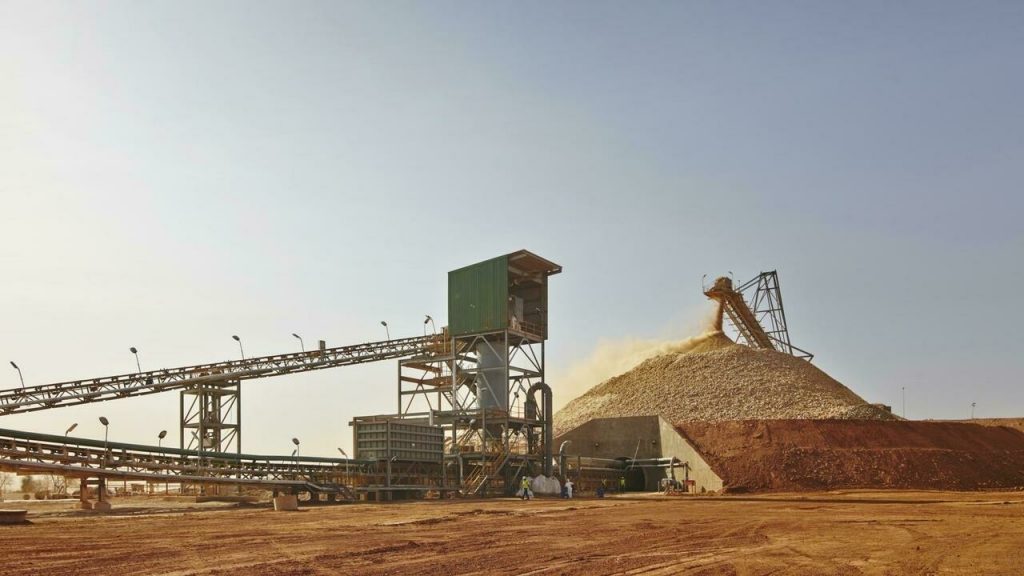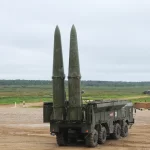Russia makes every effort to avoid sanctions and gain access to its gold reserves.
The US Treasury informed that sanctions had been already applied to any gold transactions made by the Central Bank of Russia. It means Russia loses another $130 billion in reserves.
This sanction will block Russia’s efforts to sell its gold to stabilize the foreign exchange market in the country. The gold from Russian international reserves is stored in the vaults of the Central Bank.
However, ban of the Russian Central Bank gold transactions hits the economy pretty badly. As of now Russia has already lost more than $300 billion in foreign currency reserves and securities placed abroad. Taken together, the gold sanction will freeze 3/4 of the reserves of the Russian Federation.
The move should further impact the country’s ability to launder money and will in effect apply secondary sanctions on people who trade in gold with Russia. This is another way to close sanctions loopholes, and increase economic pressure on Russian entities. The gold transactions ban is also an attempt to prevent innovative financial transactions through other countries that keep doing business with Russia.
Thus, it was assumed that Russia would be incapable of monetizing gold and minimizing a bad effect of sanctions. The sanctions are applied to any US entity that knowingly make gold transactions with Russia or transports it from the stocks of the Central Bank. The sanctions will be also imposed either on physical or online gold sale in Russia.
There is a high likelihood that representatives of the Russian authorities will try to take gold off the Russian Federation on the scheme organized after the Soviet Union collapse in the 1990s. During the period 1984-1991, 1565.3 tons of gold were taken off the USSR. Only in 1990, a record number for the whole history of the country, 474.6 tons, were exported abroad. The gold was exported strictly confidentially and with serious violations by using criminal ties.
Probably, Russia tries to build a channel to sell gold through the United Arab Emirates. Such a scheme was already tested in 2018 when Venezuela sold 3 tons of crude gold from its $900 million reserves. That gold was transported by Russian aircraft.
According to unconfirmed reports, Ramzan Kadyrov, the head of the Chechen Republic, is responsible for organizing the channel to sell Russian gold in the UAE. In turn, he is authorized to ensure Abu Dhabi with support in reducing the geopolitical influence of Saudi Arabia in the region. Being tasked by the Kremlin Kadyrov has been working with Sheikh Zayed bin Sultan Al Nahyan for a long time (at least since 2016).
The budget funds of Chechnya are transferred to various foundations of the UAE. Later on, these very funds legally come back to Chechnya as financial assistance granted by the Arab world. Having the status of humanitarian aid these funds are not taxed in Russia. Sum of these money is transferred to the foundations working in both directions, as an aid recipient and as a donor. Kadyrov’s commercial projects are financed at the cost of these funds.
To make the UAE interested in contributing into Russia’s financial schemes, Moscow suggests the Emirates to take a place of a geopolitical leader in the region, who, in turn, will rebuild relations with Iran and weaken the Riyadh-US axis.

In order to strengthen Abu Dhabi role in the Arab world, Moscow organized Syrian President Bashar al-Assad’s visit to the UAE. The sanctioned Assad met several influential and controversial rulers who signaled a willingness to strengthen ties with Syria again. It marks a potential warming in Syria’s relations with its Arab neighbors, which had previously isolated Mr.Assad. Sheikh Mohammed Al Maktoum, the billionaire ruler of Dubai, was among the Emiratis Assad had a meeting.
In addition, the Kremlin is likely to diversify expenses to support the Syrian regime with the UAE involvement.Moreover, there is a high probability that Moscow counts on Abu Dhabi’s help in reducing sanctions pressure and avoiding the consequences of the imposed sanctions. There is also a scenario that the Kremlin will try to build a global system to avoid sanctions evolving all anti-West countries, including Iran, North Korea, etc.





